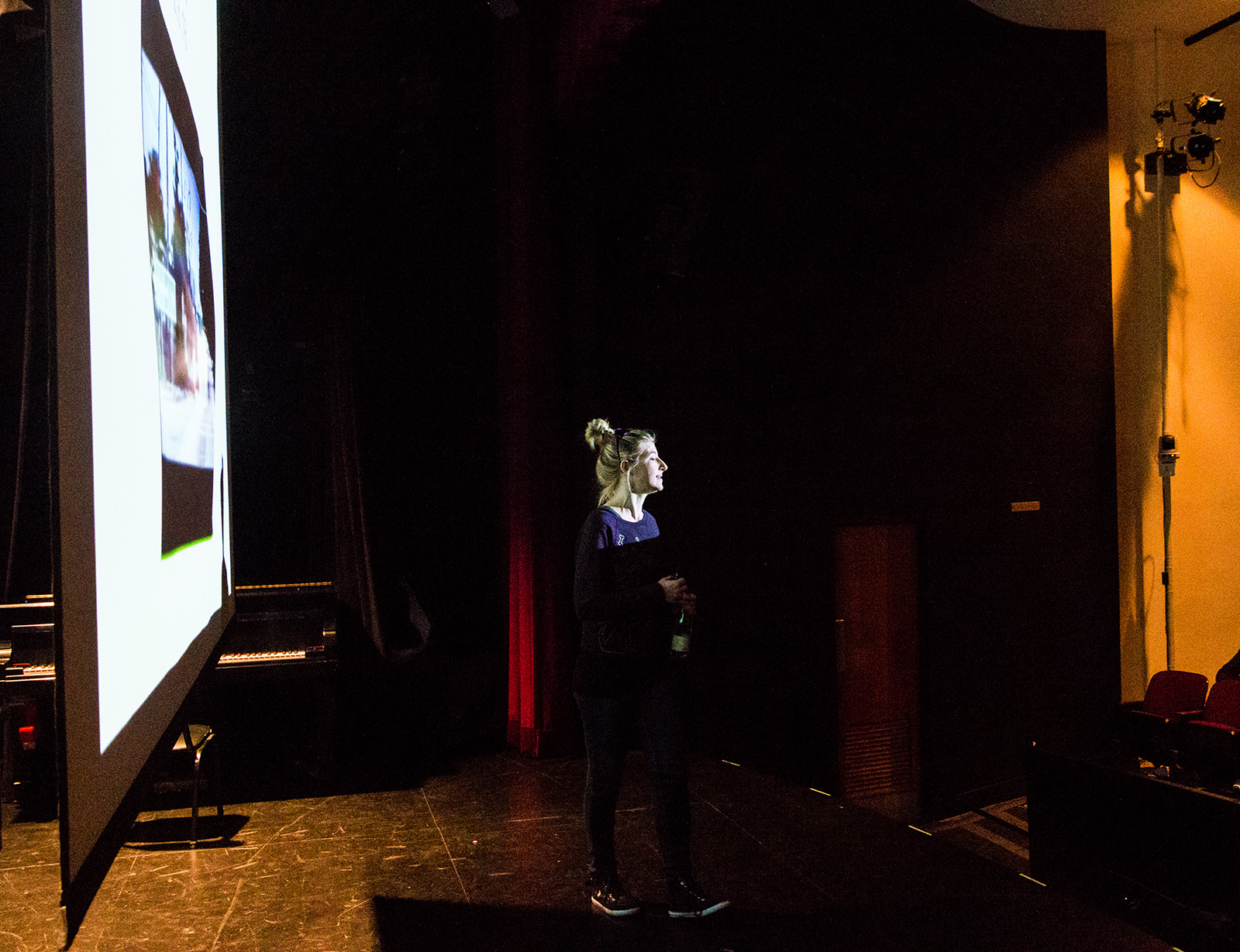UCLA punk conference to focus on experiences of marginalized groups

Students are organizing a UCLA punk conference that will explore the convergence of punk culture and archival studies. Jessica Schwartz, assistant professor of musicology and the conference organizer, said the conference will show how punk music historically disrupted the status quo set in place by people in power. (Laura Uzes/Daily Bruin)

By Kristin Snyder
Feb. 7, 2018 10:16 p.m.
Candace Hansen and Kristie Valdéz-Guillén unknowingly attended the same punk rock concert 10 years ago – now, they’re organizing a UCLA punk conference together.
Jessica Schwartz, assistant professor of musicology and the conference organizer, said its theme – exploring the convergence of punk culture and archival studies – will show how punk music historically disrupted the status quo set in place by people in power. She said the conference aims to create a space in which people who have been written out of punk history can reclaim their place in the narrative. The event, “Curating Resistance: Punk as Archival Method,” will take place Feb. 9 and 10.
“(It’s about) realizing that you’re somewhere people tell you you shouldn’t be, the media tells you you shouldn’t be,” Schwartz said. “Those forms of governance don’t fit.”
Valdéz-Guillén, a doctoral student, said archives are both the physical collection of objects, such as records and zines, and people’s experiences within the punk community, as they reflect the personal history of the genre. Hansen, a graduate student, said archives collect items deemed historically important, which is why the conference focuses on the perspectives of groups that have been excluded from the popular narrative of punk, such as women, people of color and queer people.
“I believe that all music has the potential to be read as an archival source, and punk has a specifically special thing about it in that anybody can do it,” Hansen said.
Hansen added physically archiving a person’s experiences through music and other mediums such as flyers and zines affirms the importance of the objects and ensures that future generations will have access to them. Without the physical archive, their history might go untold, she said.
Outside of the physical archive, the conference represents an opportunity to disrupt the persisting narrative surrounding punk, Schwartz said. When scholars first documented punk as an art form, they largely focused on white men and their narratives, ignoring the stories of women and people of color, said Alice Bag, a punk rock musician who will be performing at the conference.
“That’s why it’s so important for people to go back and take over the narrative, and for us to tell our own stories,” Bag said.
One way for people to reclaim the narrative is by using the conference to create a space to have discussions and interact with each other through various mediums such as panels, the performance and a punk prom, Hansen said. The prom will feature a punk DJ, a zine exchange and footage from the “GoNightclubbing” archive, which includes music performances, interviews and photographs from punk history.
Valdéz-Guillén said the conference also reflects the “do-it-yourself” spirit of punk culture – something that goes beyond music.
A panel entitled “Whose culture? Fanzines, politics and agency” will cover the impact of zines in documenting punk culture. Zines, typically handmade publications with small distributions, were an integral aspect of the Riot Grrrl movement of the 90s as they allowed feminist thinkers to share their perspective with the punk community. Bag said zines are empowering because they allow people to validate their experiences by sharing their stories outside of large media companies.
The conference organizers also curated panels focusing on marginalized groups, such as “Latinx Caribbean Punk: Race, Space, and Sound” and “Punk Political Economies,” as well as sessions offering tips on how people can preserve their own punk artifacts.
“This conference is allowing that space and saying, ‘You guys are the archive,'” Valdéz-Guillén said. “You guys are disrupting and creating dissonance in what we think to be punk.”
By focusing on the experiences of marginalized groups, Schwartz said the conference can facilitate the future direction of punk history. The nature of the conference will hopefully allow people to take what they need to help their history survive and transform it into something personal, Schwartz said.
“We need communities where there are protections,” Schwartz said. “Where survival mechanisms are shared.”


